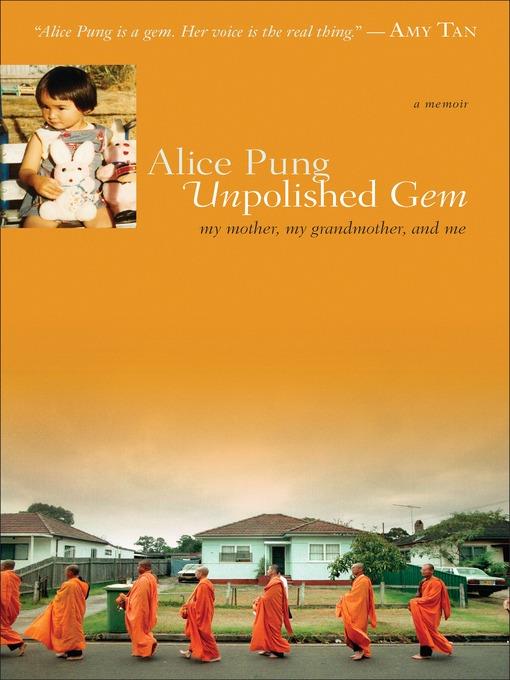
Unpolished Gem
My Mother, My Grandmother, and Me
کتاب های مرتبط
- اطلاعات
- نقد و بررسی
- دیدگاه کاربران
نقد و بررسی

September 29, 2008
“I was doomed, early on, to be a word-spreader,” Pung writes, and her special burden was “to tell these stories that the women of my family made me promise never to tell a soul.” The stories are not of scandalous secrets or shocking revelations, but of the struggles faced by three generations of Asian women as they settle in a culturally Western country. Pung, a lawyer, recounts the journey her family made over the decades—from China, her grandparents' birthplace, to Cambodia, where her parents are born, through Vietnam and Thailand to Australia where, one month after their arrival, Pung is born. In retelling her grandmother's stories, the imagined is rendered credible; Pung captures her “form of magic, the magic of words that became movies in mind.” In recollecting her own story, Pung loses that magic in the ordinariness of adolescence, and as the family moves toward achieving the “Great Australian Dream,” it passes through familiar stages—the hard work of both parents, the distance created between generations and the anxieties suffered by the younger generation (“I had done everything right, and I had turned out so wrong”). The non-European-immigrant-girl-grows-up story is a familiar one to American readers. What's new about Pung's book is the Australian setting. That twist of focus reveals how more alike than different the experience is.

November 15, 2008
Each immigrant has a story to tell, and that story usually touches on efforts to mediate between family and society and the uneasy knowledge of the older generation's painful memories. Add to this the quirks of particular relatives, the brand names and fashions of a particular time and place, and some specific coming-of-age experiences, and you have Pung's memoir, first published in Australia in 2006. In 1981, Pung's parents and grandmother fled Cambodia to Australia, where she was born one month after they arrived. Predictably, young Pung struggled to bridge home culture and school culture. As a teenager, she endured depression and near mental breakdown before being drawn out of her misery by academic success and the promise of a bright future. Some readers will enjoy Pung's light touch and casual tone; others will find the insights bland. No new ground is covered with this memoir, despite its being one of few written by Southeast Asian refugees to Australia. Recommended for public libraries with larger Asian populations or high demand for memoirs.Lisa Klopfer, Eastern Michigan Univ. Lib., Ypsilanti
Copyright 2008 Library Journal, LLC Used with permission.

December 1, 2008
Pungs edifying memoir illuminates not only the cultural clash experienced by her Cambodian family after they landed in Australia in 1980 just before she was born but also her personal travails as a young woman coping with a mother and grandmothers steeped in centuries-old traditions. Throughout her school years, Alice struggles to cope with being the different one, while within her own family, she is under constant pressure to be an example to her younger siblings. She regrets not being a boy because her grandmothers hint that all that matters for girls is that they can make a good pot of rice, have a pretty face, and be fertile. She achieves the usual Asian High-Achiever marks in high school, but suffers from depression her senior year, barely able to appear in public. She passes her university exams, but even in college she feels pressure to conform to her parents expectations, and feels as though shes wearing a mask. Pung offers thoughtful commentary on the immigrant experience, seen through the eyes of one who has successfully emerged.(Reprinted with permission of Booklist, copyright 2008, American Library Association.)

























دیدگاه کاربران